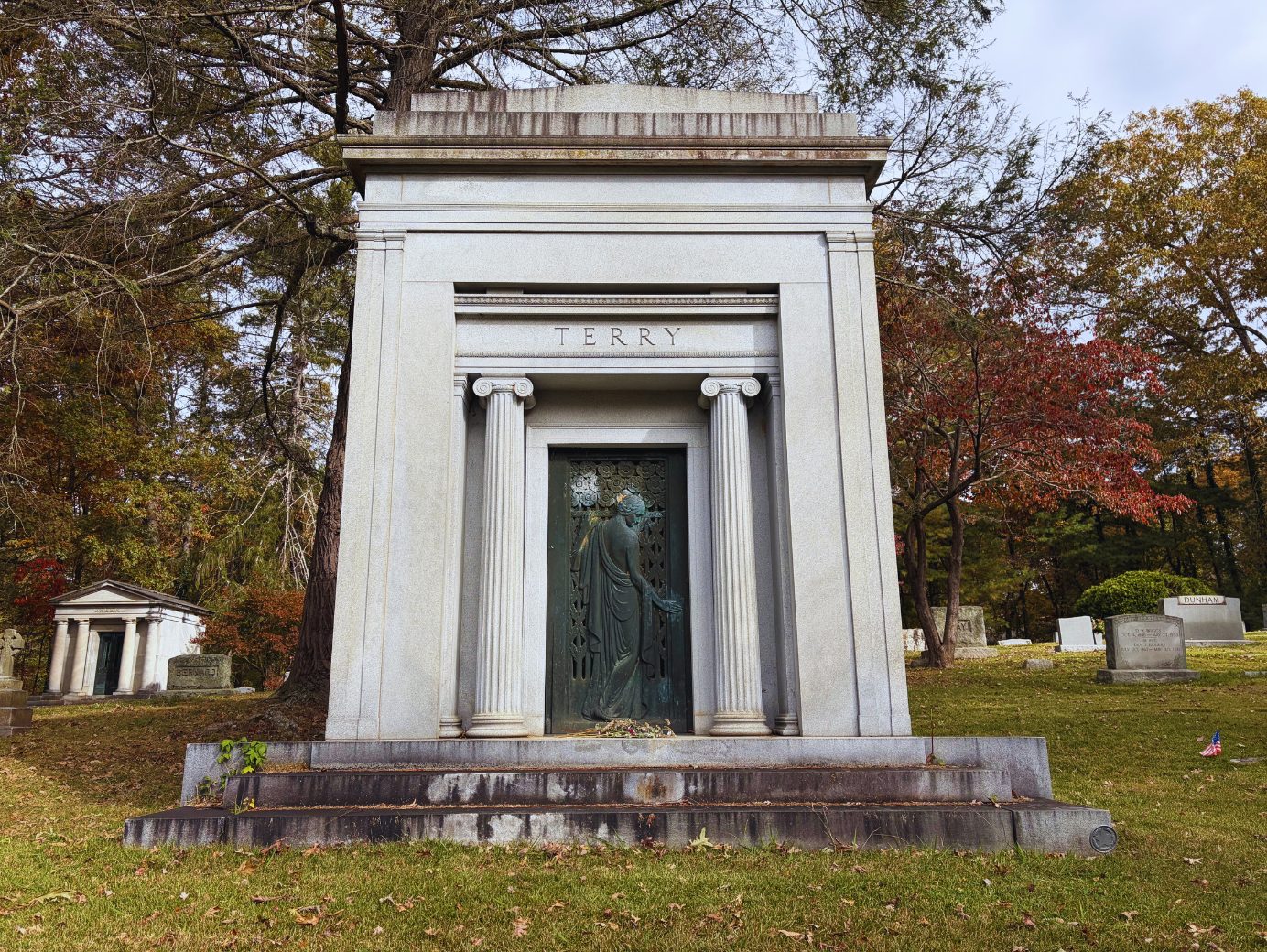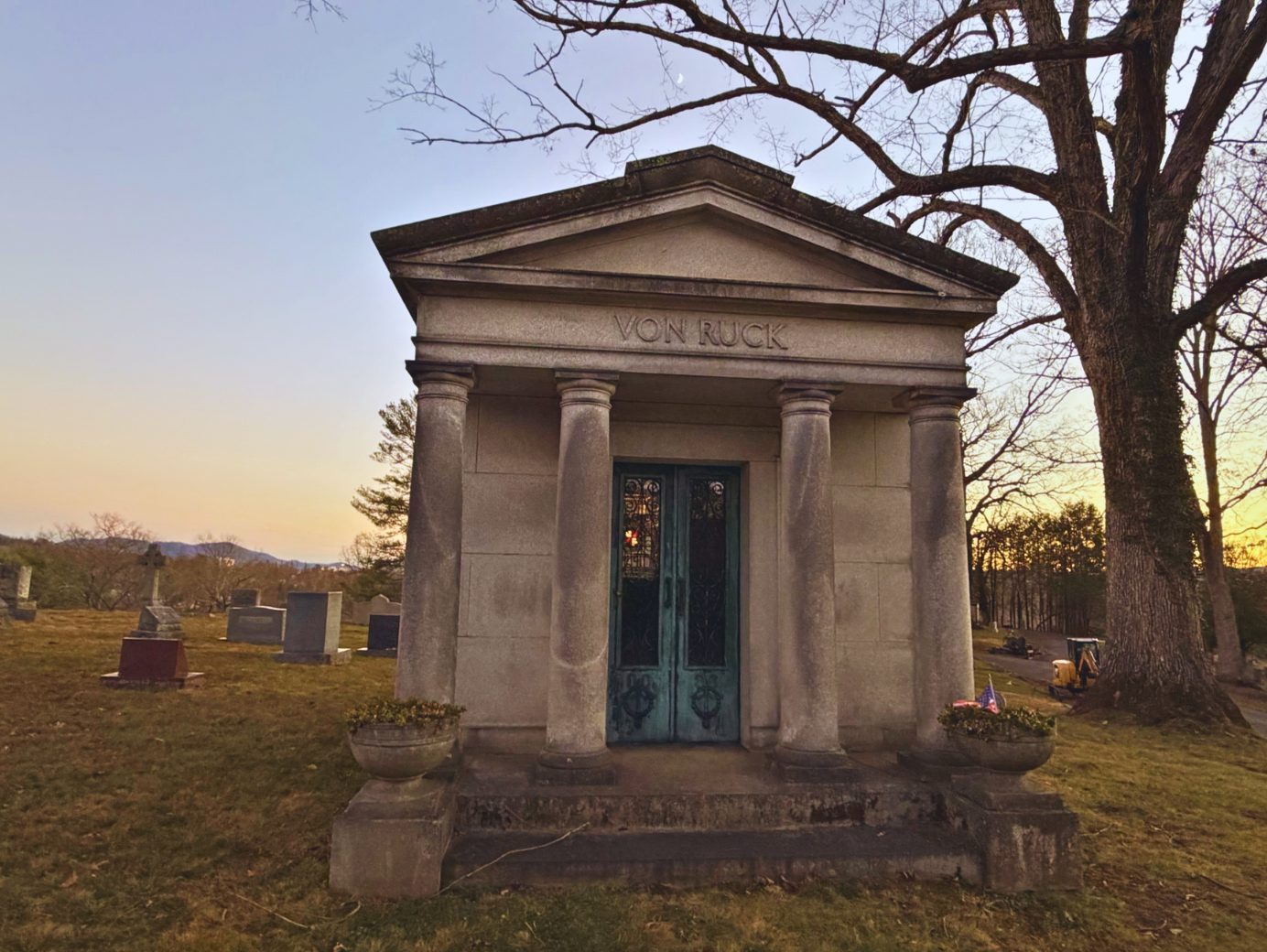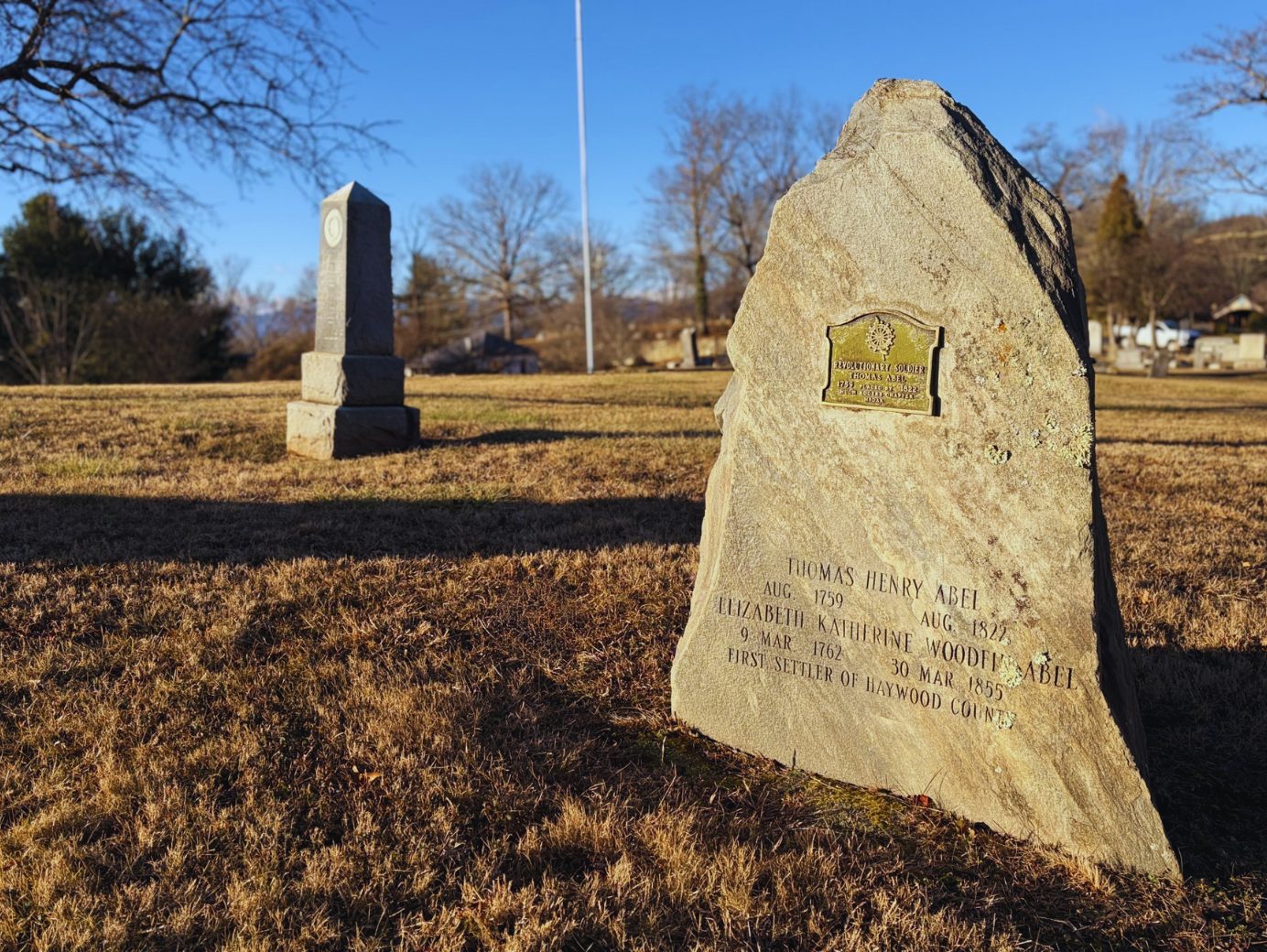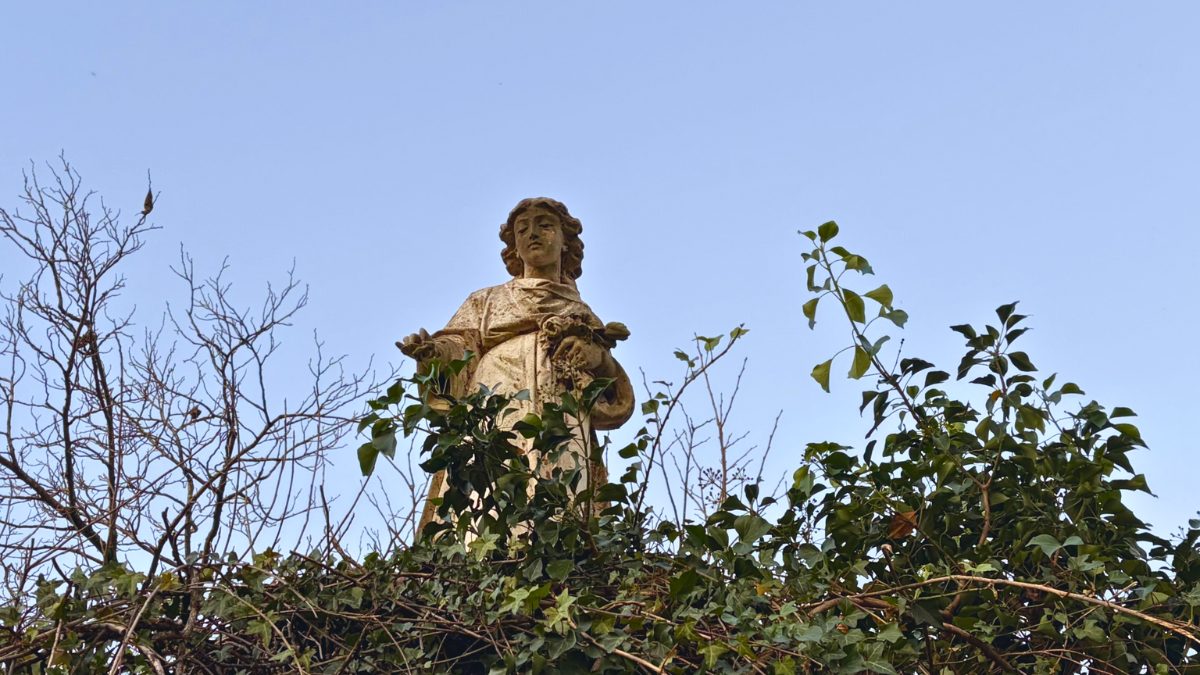Editor’s Note: Western North Carolina is rich with untold stories—many resting quietly in local cemeteries. In this Tombstone Tales series, we explore the lives of people from our region’s past whose legacies, whether widely known or nearly forgotten, helped shape the place we call home.
ASHEVILLE, N.C. — Will Rogers once said, “If there are no dogs in Heaven, then when I die I want to go where they went.” In Asheville’s Riverside Cemetery, one terrier’s quiet devotion to her master and the compassion of the cemetery’s longtime superintendent left behind a story as enduring as any headstone.
Colonel John A. Fagg, a well-known resident of Asheville in the late 19th century, spent his final years mostly confined to his home due to poor health. By his side were two small terriers—a male and female—his faithful companions. According to a report published in the Asheville Times on July 6, 1888, their bond was so strong that the dogs rarely left Fagg’s side.
When Fagg died in 1888, the terriers were inconsolable. They searched the house, wandered the property, and visited other family homes—behaviors entirely out of character. Their grief became especially apparent in the actions of the female terrier, whose sorrow seemed to deepen with each passing day.
Then, in an act that astonished many who heard of it, the female terrier made her way to Riverside Cemetery—a journey of more than a mile from the Fagg home. No one knew how she found her master’s grave, but once she did, she returned to it day after day. She refused food, ignored affection, and remained at the grave site until, weakened and emaciated, she died on the very ground where her owner was buried.
The terrier died in July 1888, just weeks after her master’s passing. Her death was described at the time as “as true an illustration of a broken heart as was ever given by humanity.”
The dog’s devotion didn’t go unnoticed. W.S. Cornell, the superintendent of Riverside Cemetery, was moved by the story and the animal’s visible grief. He made the decision to bury the terrier at the foot of Col. Fagg’s grave, honoring her loyalty with the same dignity extended to human mourners.

Cornell’s compassion wasn’t unusual. As one of the earliest employees of Riverside Cemetery, he oversaw its first burial in 1885 and worked there until shortly before his own death in 1917. According to Asheville Parks and Recreation’s “Park Views,” Cornell was instrumental in shaping the cemetery into the landscaped, peaceful space it remains today. His decades of service were driven by a personal commitment to ensuring Riverside was a place not only of rest, but of reverence.
Today, the grave of Col. Fagg in Riverside Cemetery is quiet, like many of the 13,000 final resting places scattered across the property. There is no stone marking the spot where the little dog lies. But the story has endured thanks to a superintendent who believed the cemetery belonged to all who loved, mourned and remembered.
In a place meant for remembrance, the terrier’s devotion stands out. It’s a quiet reminder that loyalty doesn’t fade with time or death. Sometimes, it waits faithfully at the foot of a grave.






